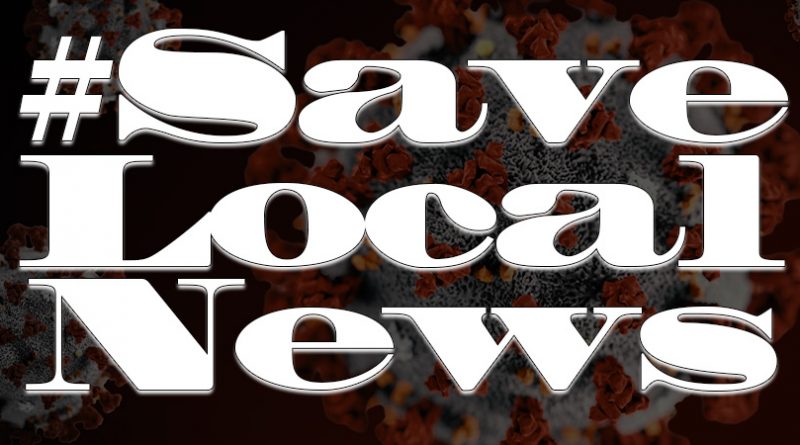COVID-19 is killing community journalism. Here’s how you can help.
By Brandi Makuski
“We are heartbroken to share this news,” the headline read. “Over the past few weeks we have been trying to cover the turmoil and grief that COVID-19 has caused our Madison community. Today, we unfortunately need to share our own story. We have decided that if there is any chance of seeing life on the other side of this storm, Isthmus must go dark for an undetermined amount of time.”
The 44-year-old free weekly news publication boasts a staff of about 36, including some Pulitzer Prize-winning writers. On March 19, the publication announced it was closing its doors, at least for now.
It’s close to home, but certainly not the latest—or the last—news casualty of the COVID-19 crisis sweeping the nation. The pandemic has forced many businesses to close their doors and millions out of work, including about 70,000 people in Wisconsin who last week filed an initial claim for unemployment insurance. It’s done a good job of keeping much of Portage Co. at home.
Some are fortunate enough to be able to keep their jobs. Emergency responders and other government agencies, food manufacturers and distributors, healthcare organizations, and the like, have all been deemed as “essential services” and not subject to state-ordered closures.
A series of battle cries rallying for support of locally-owned bars, restaurants, and other shops have made a home on social media pages within Portage Co. Yet none mention locally-owned news outlets.
News organizations are included on Gov. Tony Evers’ list of essential services, who said his March 20 order that “media and news organizations can remain open to provide the public with vital information.”
But it’s been an uphill battle for many news outlets just to keep the lights on.
See: Limited time offer; two years for only $60!
During the COVID-19 crisis, many news outlets, including the Point/Plover Metro Wire, have lowered their paywalls on coronavirus stories to ensure the public—even those who don’t subscribe—has access to important news relating to the pandemic.
But that means local news outlets are losing money hand over fist. Add to that the loss of advertising revenue caused by the closures: a business that no longer offers their Friday night drink specials or one that has closed indefinitely will no longer pay to advertise on news websites. It could take months, maybe longer, before those advertising budgets can be tapped again.
It’s hard to say how many news outlets have laid off staff, ceased printing, or closed down altogether, but it likely will only get worse. So far, news outlets in more than 20 states have announced either a closure or a reduction in staff or services, with recent announcements from a string of six news outlets in Wyoming, and last week, confirmation that Gannett would enact pay cuts and furloughs at more than 100 of its publications across the country.
The effects will likely extend to locally-owned news outlets, too. In an interview with The Guardian last week, Mike Rospoli, the director for News Voices, a nonprofit news advocacy group, said the “possibility of newspapers closing is incredibly worrisome right now, especially because the information we need around the coronavirus are things at the local and municipal level.”
Nieman Journalism Lab is one of many organizations reporting on what’s happening to journalism during the COVID-19 crisis. The unique challenges facing the industry are often overlooked or ignored by the public-at-large, though it shouldn’t be, according to Joshua Benton, Nieman’s director, in his story, “‘Total annihilation’: Coronavirus may just be the end for many alt-weeklies.”
Locally, the crisis has turned some news outlets into a clearing-house for republishing press releases verbatim; the same press releases that already clog readers’ social media pages. That practice only furthers the onslaught of information currently overwhelming readers—and is done much to the dismay of some local leaders.
“The role of the media has never been more important than it is now,” said Portage Co. Sheriff Mike Lukas during an interview earlier this week. “I mean, we can put out a press release, but we’re just putting out facts and data, and sometimes, things are changing so fast it’s practically out-of-date by the time we write it up and send it out.”
Since the COVID-19 crisis began, the Metro Wire staff has been in continuous operation bringing you the latest in coronavirus news, while simultaneously bringing you exclusive stories on the investigation in Police Chief Martin Skibba, local crime stories, and stories from local families dealing with the COVID-19 quarantines. We reported stories about pending charges in a 2018 drug overdose death, were first on the scene at a Smith St. fire on March 23 and, as the only news presence during the arson suspect’s bond hearing, brought you exclusive details on the subsequent arrest.
In the coming days and weeks, our staff plans to publish stories on the mayor’s travel expenses, report how the small police dept. in Plover recently managed to secure one of the few “bodyless homicide” convictions in state history, how the Stevens Point Fire Dept. is working to remove PFAS from its industrial foam supply, and details on why a small fire department in Hancock suddenly closed without warning.
See: Limited time offer; two years for only $60!
That’s beyond our usual coverage on new construction projects, roadway reconfigurations with new bicycle lanes, the April 7 election, and 24/7 breaking news.
Can’t afford to subscribe? You can still read much of our news, which we offer free as a community service. You can also support us by sharing our stories on Facebook, and sending us your news tips via Facebook or email.
Surviving COVID-19 will be tough for community news outlets. But if we’re going to survive, we need your help. To put it bluntly: if you don’t support your local news outlets now, you will lose an extremely dedicated lifeline to community news and watchdog journalism.


